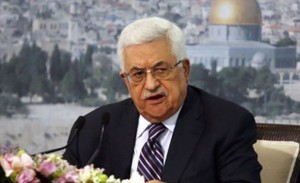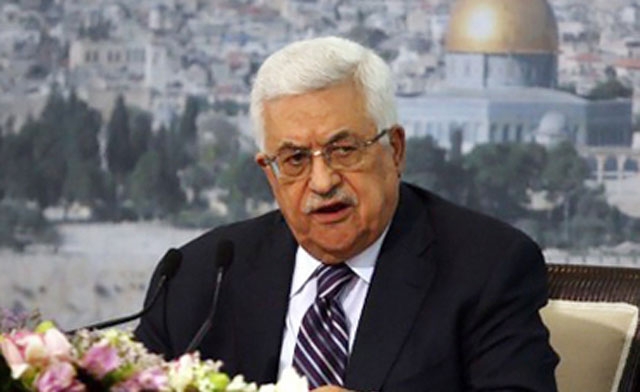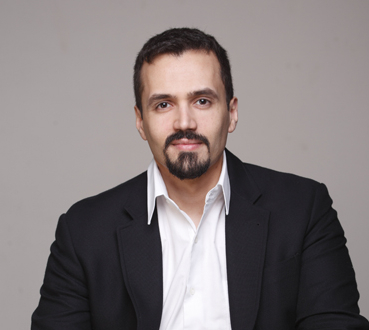
(AFP PHOTO)
Arab League foreign ministers have resolved Saturday to back the Palestinian bid for statehood in front of the United Nations Security Council by presenting a draft resolution determining a timeframe for creating the State of Palestine and “end the Israeli occupation of the Palestinian territories” within the coming days, according to a Saturday statement by the Arab League.
The Council of Foreign Ministers assembled Saturday in Cairo to discuss the current situation in Palestine. The meeting was attended by Palestinian Authority President Mahmoud Abbas.
Abbas said that “the current situation of the Palestinian territories is not sustainable… we have no option but to internationalise the issue.” He added that in case the statehood bid is thwarted, “we would move towards defining our relations with Israel by halting security coordination and calling for the occupation to assume its responsibilities.”
The ministers agreed on several decisions, including the continuation of the joint Arab action to ensure the international recognition of the State of Palestine with its capital East Jerusalem, the “absolute refusal” of recognising Israel as a Jewish state, warning against the consequences of its “racism”, and rejection of all pressures exerted on the Palestinian Authority in this regard, the statement read.
Israeli Prime Minister Benjamin Netanyahu has proposed a controversial bill in front of the Knesset that would legally define Israel as the state of the Jews.
Abbas noted that “Palestinians will not recognise Israel as a Jewish State”, and referred to the proposed legislation as an Israeli attempt to enshrine an “apartheid regime”.
The law is one of five other “racist laws”, including the 800 kilometers of “sterile” roads in the West Bank, which Palestinians are not allowed to use. Furthermore, they include the law stating that public buses are only open to use by the Jewish population, the enactment of the Israeli settlement law in the West Bank which states that the lands on which these settlements preside belong to Israel, the Jewish state bill and the bill of swearing allegiance to the Jewish State of Israel, said Abbas.
During the meeting, the ministers condemned Israeli practices “that aim to divide Al-Aqsa Mosque and impose Israeli control on it”. They also condemned the repeated attacks on the mosque by “Israeli extremists”, stating that it poses a threat of an outbreak of a religious war.
Clashes have flared between Israelis and Palestinians since October in the area around the Al-Aqsa Mosque in Jerusalem, when Israeli forces stormed the mosque while worshippers were praying. Israel has since imposed a restriction allowing only Palestinians above the age of 50 into the compound.
Earlier in November, two Palestinian militants belonging to the Abu Ali Mustapha Brigades attacked worshippers in a synagogue in the Har Nof neighbourhood in West Jerusalem.
Abbas condemned the attack and called for the “end to the intrusions of the Al-Aqsa Mosque, the settlers’ provocations and incitement of some Israeli ministers”. Netanyahu blamed Abbas and Hamas leaders for inciting the attack and ordered the demolition the homes of the attackers who were already killed by Israeli police right after the attack.
Abbas met with Egyptian President Abdel Fattah Al-Sisi Saturday. Al-Sisi said that resolving the Palestinian issue is a cornerstone to achieving stability and security in the Middle East.
Al-Sisi stressed that the Palestinian issue is one of the priorities of Egyptian foreign policy. Within this framework, Al-Sisi pointed to the Palestinian demands that include the need to stop the settlement activity, the release of the captive prisoners and halting the attacks on Al-Aqsa mosque.
Al-Sisi had previously stated in an interview with Italian newspaper Corriere della Sera that he would be willing “to send military forces to a Palestinian state” in order to reassure Israel and assist police forces.
In a TV interview that was broadcasted Saturday on Al-Kahera Wal Nas channel, Abbas noted that there is no objection to the presence of Egyptian troops on Palestinian territories. “It is welcomed, as Al-Sisi wouldn’t say anything contrary to the interests of the Palestinian people.”


